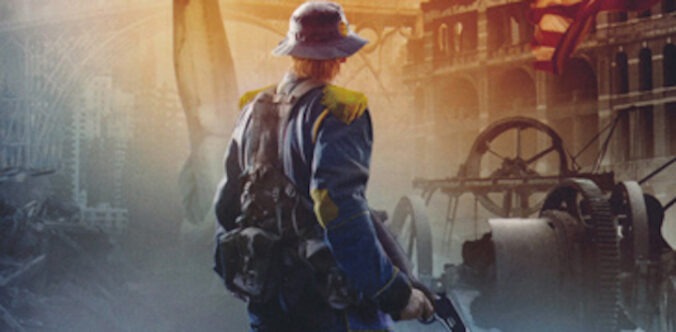Feels like far too little time, but we’ve arrived at the final reading list of 2024! Here’s what I’ve been reading as the year winds down.
As always, let me know what you’re reading. And, don’t worry too much about the end of 2024. I’ll be back with another list in January.
Sara Ahmed – Complaint!
I hesitated before checking this one out. It looked like an interesting social history of complaints, especially in institutional settings and especially involving harassment. That’s a topic I find interesting and important. But I balked at the author’s background in academic theory, which suggested to me the book might be full of incomprehensible jargon.
I’m glad I read it. Though Ahmed tries too hard for clever wordplay at times, overall she lays out a compelling, original, and thorough assessment of the various ways systems and institutions block complaints.
I’ve served as the harassment and grievance officer for a local political org, and I’ve worked with many academics who have (both formally and informally) reported being abused. And I think Ahmed nails it. In exacting detail, she tells us how people use friendships, relationships, and even social justice language, to marginalize victims and protect institutions and abusers.
I even found Ahmed’s book relevant recently in a local political race in my county. A distressingly large number of social justice activists excused a candidate against credible charges of creating a toxic work environment on the grounds that his behavior came from his ‘Latino culture.’ People go to amazing extents to come up with excuses for this stuff.
Margo Jefferson – Negroland
Jefferson is a writer, critic, and professor of writing at Columbia. She tells a particular story about race in America – one of the trials and prospects of the black upper class. She does this through the story of her own family, a product of this space for generations.
It’s a fraught story, one where the black upper class is torn between privilege and resentment, with the resentment of whites acting as an outside catalyst. Jefferson discusses all these issues thoughtfully and carefully. She freely criticizes each group, including people with her own background.
Interestingly, Jefferson focuses much of her memoir on childhood, devoting about two-thirds of the book to her first 20ish years of life. Those years – the world of the 1950s and 1960s – highlight this racial system in operation, shaping Jefferson’s childhood and setting the stage for certain world events today.
On the whole, I’d recommend the book. The organization and headlines can be difficult to follow at times. But the book is well worth the effort.
George A. Romero and Daniel Kraus – The Living Dead
So, I don’t read many zombie novels. Let’s start there.
This one isn’t a good book – probably none of them are. But it has its charms.
Readers might know Romero as a zombie film legend, with his Night of the Living Dead and following films. True to his films, this novel version functions as political satire. Romero and Kraus target the kind of warmongering and toxic masculinity that could lead to an apocalyptic world.
Along the way, the novel delivers all the absurd situations and over the top violence one could expect from the dead reanimating and biting the living. Something that sets this one apart from other zombie-based works is that we get an overview of how society handles zombies over time. It culminates in a conclusion to the story set more than a decade later.
Again, it’s not a good book. But if you can stomach the violence, it’s interesting enough.
Michael Sokolove – The Last Temptation of Rick Pitino
What better read for college basketball season than an account of the scandals that rocked the sport in the mid-2010s?
More seriously, though, this book does two things. First, it provides an account of the series of scandals that hit Rick Pitino and the University of Louisville, college basketball’s wealthiest program, over the course of the 2010s. Second, it contextualizes that account within an overall dirty period of the game.
I grew up in basketball-loving southern Indiana while Pitino coached at Kentucky, so he’s a familiar figure to me. And I saw up close his early years at Louisville, as he rebuilt the once mighty program into a renewed powerhouse.
But Sokolove does a great job explaining how the entire game filled with sketchy figures, corrupt shoe companies, and illicit money flowing in multiple hidden directions. Pitino was hardly a unique figure, and he was even far from the worst violator. He just got caught at the wrong time, both for him and for U of L.
Sokolove doesn’t make this point to excuse Pitino, but rather to point out the deep reforms needed to rescue college basketball. That’s a commendable mission.
Robert Charles Wilson – Julian Comstock
I read Wilson’s novel Burning Paradise recently, finding it to be a hidden gem. It’s a work of futuristic, speculative fiction that builds characters well and doesn’t involve space and galactic empires. Could lightning strike twice with this book?
For the most part, yes.
Julian Comstock is set in a 22nd century that has regressed to 19th century social and economic levels, due to a sharp decline of oil production in a peak oil like event. The United States still exists, but it includes much of the Western Hemisphere. It’s fighting a war in Canada against a European power.
Just as interestingly, the book follows as its main character one Julian Comstock, who Wilson models fairly explicitly on the Roman Emperor Julian the Apostate. Like Emperor Julian, Julian Comstock grows up fearing for his life due to a powerful relative, makes himself popular with the army, earns the distrust of local religious authorities, and enters office as a leader looking to make certain ‘progressive’ reforms.
And like the other novel, Wilson uses this one to very effectively develop his characters, especially Julian and, even more so, Julian’s friend who narrates the story.
